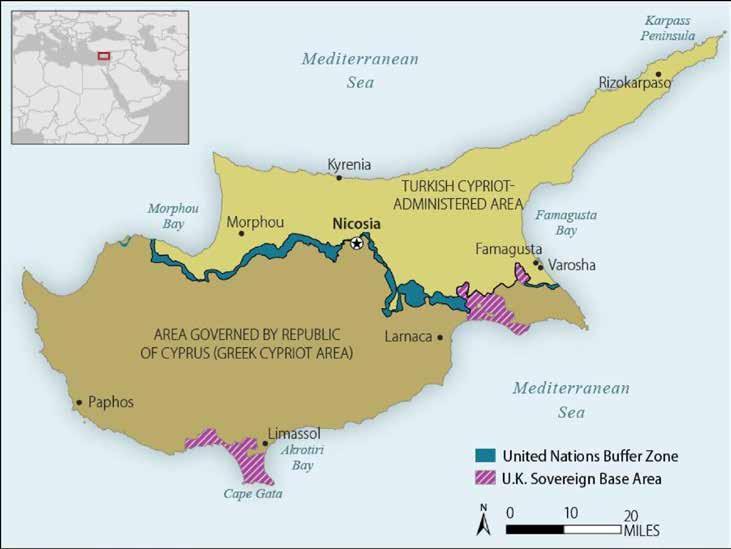
1 minute read
Conclusion
More than half a century of diplomatic engagement has failed to solve the Cyprus problem. The perennial conflict in the Eastern Mediterranean is marred with resignation and often overshadowed by some of the more volatile conflicts in its neighborhood. However, Cyprus is a stable democracy and a reliable American partner in the region. U.S. political, military, and economic interests at the regional and global level benefit from a robust partnership with Cyprus and stability in the Eastern Mediterranean.
Stability on the island and in the region requires the United States to challenge growing assertiveness by Turkey and expanding influence by Russia, while contributing to efforts that will foster peace and manage sources of tension in Cyprus itself. As the division of the island enters its sixth decade, the time is growing ripe once again to pursue another round of settlement negotiations — this time with the constructive engagement of women, young people, and civil society organizations — before Ankara’s creeping annexation over northern Cyprus squashes the opportunity for peace.
Failure to reach a settlement, or to manage the tensions on the island and in the Eastern Mediterranean caused by clashes over energy and territory, will lead to greater instability and risk pulling the United States into another conflict situation in the region. It is imperative to resolve existing disputes over hydrocarbons to avoid spoilers from disrupting a potential peace process in Cyprus. The imminent transition to the incoming administration is an opportunity to reinvigorate U.S. policy and diplomacy toward Cyprus that would lead to a more stable and prosperous RoC and protect U.S. interests in the Eastern Mediterranean into the next decade.
Members of the workshop team preparing for their briefing over Zoom. Source: Rebecca Gorin

Source: Congressional Research Service







